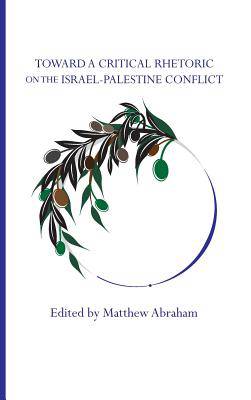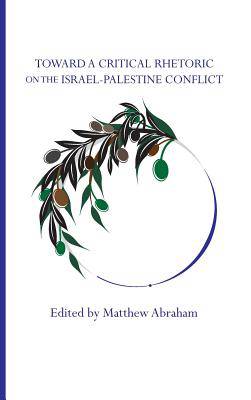
- Retrait gratuit dans votre magasin Club
- 7.000.000 titres dans notre catalogue
- Payer en toute sécurité
- Toujours un magasin près de chez vous
- Retrait gratuit dans votre magasin Club
- 7.000.000 titres dans notre catalogue
- Payer en toute sécurité
- Toujours un magasin près de chez vous
54,45 €
+ 108 points
Format
Description
TOWARD A CRITICAL RHETORIC ON THE ISRAEL-PALESTINE CONFLICT draws on critical conceptions of rhetoric to explore the ways that affective and transferential forces affect discussion of the Israel-Palestine conflict and to create openings for broader understanding. Contributors include Matthew Abraham, Anis Bawarshi, Amos Kiewe, Michael Bernard-Donals, Michael Kleine, Robert Rowland, David Frank Shai Ginsberg, and James Crosswhite. "Matthew Abraham has brought together leading scholars in the field of rhetorical studies to bring their insight to bear on the difficult task of discerning the impassioned rhetoric of the Israel-Palestine conflict. As those scholars make clear, the rhetoric of the Israel-Palestine conflict is as pervasive as it is divisive, reaching beyond the geography of the Middle East to influence the nature of international relations, the discourse of domestic politics, and the interactions within local communities. The contributors to the volume remind us as scholars that we have much to contribute to the pressing problems of the world. The contributors to the volume remind us as people just how imperative it is that we reflect deeply on our rhetorical choices." -RICHARD MARBACK, Research Fellow, Center for the Study of Citizenship, Wayne State University "Kenneth Burke writes that where there is absolute division, rhetoric fails; where there is absolute identification, rhetoric is unnecessary. Consider the truth of that observation when discussion turns to the Israel-Palestine conflict. In this collection, however, we are where Kenneth Burke says rhetoric occurs: in the interstices between identification and division. Accordingly, the contributors to Toward a Critical Rhetoric on the Israel-Palestine Conflict don't avoid the binaries; they explore them-in keeping with Burke's notion of where rhetoric resides. They explore the binaries in ways that are so rare in popular discussion. We have in this collection, then, a way into the debate, if not a resolution." -VICTOR VILLANUEVA, Regents' Professor and Director of The Writing Program, Washington State University "Abraham's TOWARD A CRITICAL RHETORIC ON THE ISRAELI-PALESTINE CONFLICT addresses traditional rhetorical artifacts (the media accounts that we have come to expect from collections like this since Said's Covering Islam, as well as traditional presidential public address). It also addresses less traditional rhetorical artifacts: from professional discussion lists like WPA-L, the email list for Writing Program Administrators, to the discourse around sister-city designations in Madison, Wisconsin The contributions demonstrate the insights generated by rhetorical theories used to unpack texts, such as genre theory and rhetorical listening. Other essays draw on critical theorists such as Levinas and Ricoeur to inform close textual analysis about the most important ethical, political and economic conflict in the world." -David Beard, Associate Professor of Rhetoric, Scientific and Technical Communication, University of Minnesota - Duluth
Spécifications
Parties prenantes
- Auteur(s) :
- Editeur:
Contenu
- Nombre de pages :
- 206
- Langue:
- Anglais
Caractéristiques
- EAN:
- 9781602356948
- Date de parution :
- 05-07-15
- Format:
- Livre relié
- Format numérique:
- Genaaid
- Dimensions :
- 152 mm x 229 mm
- Poids :
- 475 g







